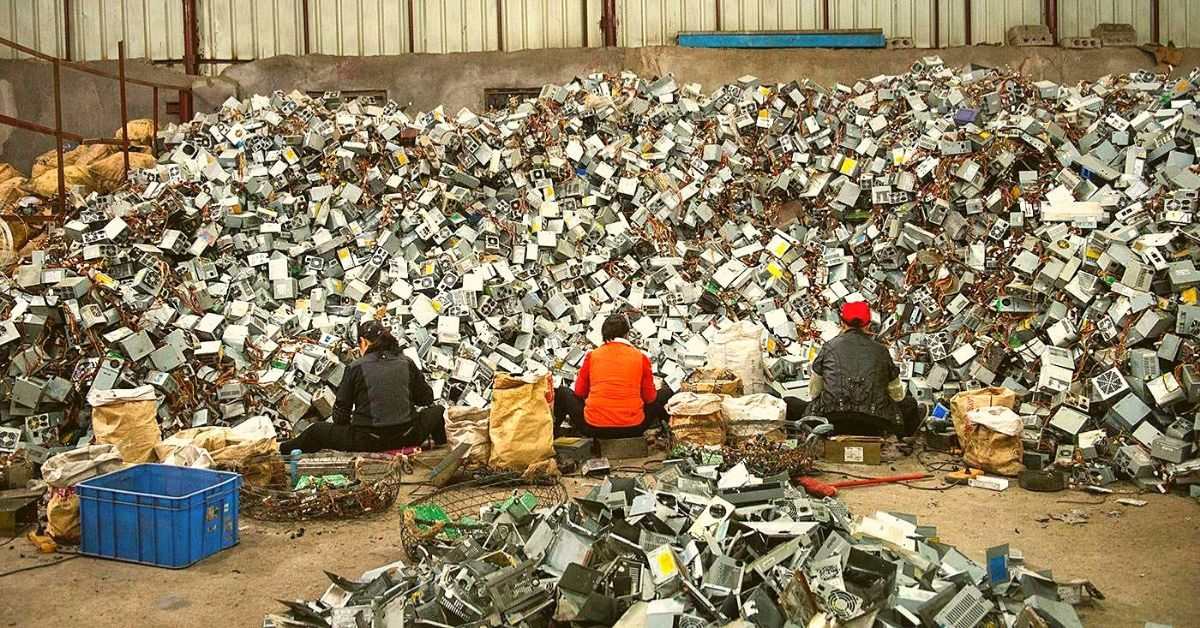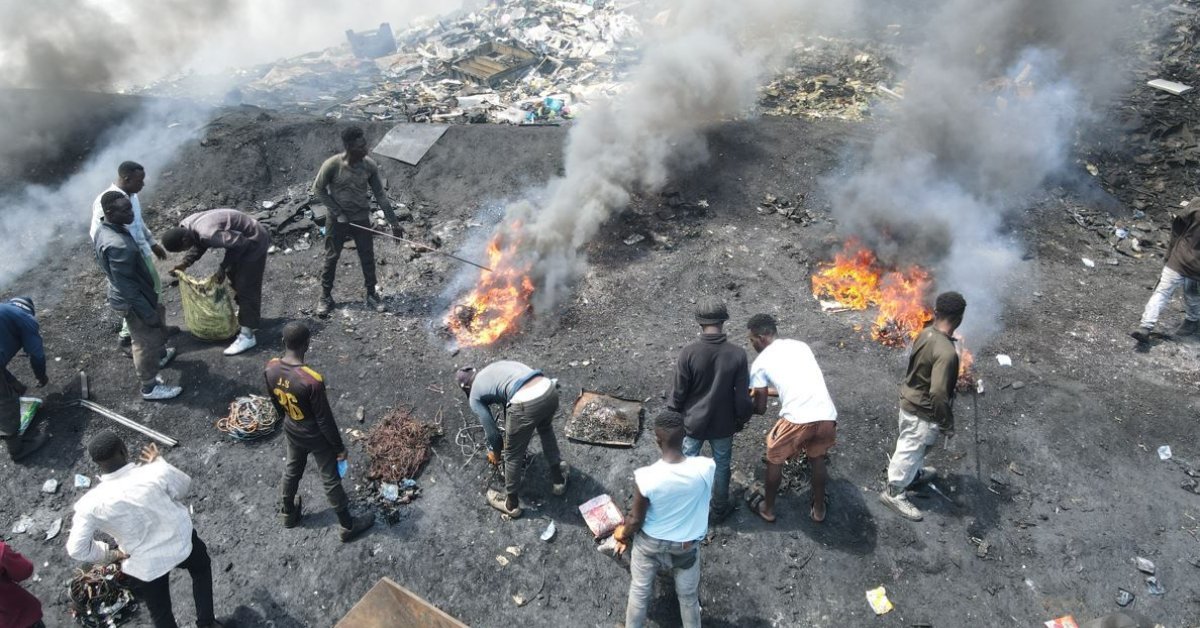Gadgets Don’t Belong in the Bin — Here’s How to Recycle E-Waste Responsibly in India
(Featured image courtesy The Guardian)
Every time we replace our phone, upgrade a laptop, or ditch a broken appliance, we leave behind something invisible, not to the eye, but to our concern: electronic waste or e-waste.
In India, over 1.6 million tonnes of e-waste were officially generated in 2021-22, and that number keeps rising. But here’s the catch: only a fraction of it is recycled through authorised channels.
The rest? It ends up in landfills or in the hands of informal recyclers who dismantle it without any safety gear, poisoning the soil, water, and their own health.
So what can you do when your phone dies, your TV conks off, or your tangled drawer of chargers gets too full? Here’s a simple, effective guide to help you dispose of your e-waste responsibly, without hurting the planet or the people on it.
What is E-waste?
E-waste includes anything with a battery, plug, or circuit board that you no longer use, like:
- Mobile phones, laptops, tablets, and printers
- Fridges, ACs, washing machines, microwaves
- Cables, chargers, earphones, and remote controls
Why you should never toss it in the bin?
Throwing e-waste in regular bins means it often ends up in dumping grounds, releasing toxic substances like lead, mercury, and cadmium into the soil and groundwater. Informal scrap workers, including children, often burn or break apart these items without protection, risking long-term health hazards.
How to dispose of e-waste the right way?
1. Use brand take-back programmes: Many electronics companies offer take-back or recycling programmes:
- Apple: Return devices at any Apple Store or initiate a trade-in online at apple.com/in/recycling
- Samsung: Locate a nearby authorised service centre via samsung.com/in/recycling
- Dell and HP: Offer e-waste pickup through online forms — check their India support pages.
If you’re buying a new product, ask if they can take your old device back.
2. Find an authorised recycler near you: Use the Central Pollution Control Board (CPCB) portal to search for state-wise authorised recyclers. Here are a few trusted organisations you can contact directly:
- Ecoreco (Pan-India)
- Website: www.ecoreco.com
- Services: Bins, pick-up, drop-off points, and secure data destruction.
- Contact: Call 1800-102-1020 or book a pickup via their app Ecoreco e-Waste.
- Cerebra Green (Karnataka, Delhi NCR, Tamil Nadu)
- Karo Sambhav (Multiple cities)
- Website: www.karosambhav.com
- What to do: Go to their ‘Consumer’ section to locate collection points near you.
- They also work with schools, Resident Welfare Associations (RWAs) and companies to run awareness drives and recycling campaigns.
- Hulladek Recycling (Kolkata, Guwahati, Ranchi, Siliguri, etc.)
- Website: www.hulladek.in
- Contact: WhatsApp 99030 28800 or fill out a form for doorstep collection.
 It is important to hand over e-waste to authorised recycling partners.
It is important to hand over e-waste to authorised recycling partners.
3. Schedule a doorstep pick-up: Some services will collect your e-waste directly from home:
- Recykal (Pan-India)
- Website: recykal.com
- App: Recykal Marketplace (Android/iOS)
- Services: Book a pick-up, earn reward points, and track waste movement.
- ScrapUncle (Delhi NCR, Mumbai, Bangalore)
- Website: scrapuncle.com
- Contact: WhatsApp +91 8595358613
- What to do: Book via app or website, select items, and get doorstep service.
- BinBag (Bangalore-based, expanding to other cities)
- Website: binbag.in
- Contact: support@binbag.in
- Services: Individual and institutional e-waste pickup.
4. Donate working devices: Your old laptop or phone might still have life in it. Consider donating to:
You can also post on Freecycle, OLX, or local community groups to give away usable electronics.
Protect your data
Always do the following before disposing:
- Backup and wipe your data
- Do a full factory reset
- Remove any SIM cards or SD cards
- Use tools like DBAN (Darik’s Boot and Nuke), an open-source software that helps to wipe hard dick drives for laptops to securely erase hard drives
 Burning e-waste releases toxic chemicals, which are dangerous for the soil, water and air. Picture source: BBC.
Burning e-waste releases toxic chemicals, which are dangerous for the soil, water and air. Picture source: BBC.
While it may be convenient, selling to informal scrap dealers usually means unsafe handling of toxic waste. These items may be burned, dismantled, or dumped improperly. Stick to authorised channels to ensure your device is safely dismantled, recycled, or repurposed.
Spread the word
If you live in a society or work in an office, start a conversation about hosting:
- Quarterly e-waste collection drives
- Awareness campaigns in schools and colleges
- A permanent drop-box for gadgets in common areas
- Platforms like Karo Sambhav and Ecoreco can help you set this up.
It’s not just waste, it’s responsibility
E-waste isn’t just junk; it’s a cocktail of precious metals, reusable parts, and toxic chemicals. Proper recycling can reduce pollution, recover valuable resources, and protect vulnerable workers.
The next time you hold on to a broken phone or throw away a dead battery, remind yourself that it doesn’t just go away. It goes somewhere. Let’s make that somewhere a safe, sustainable place.
Edited by Saumya Singh
News